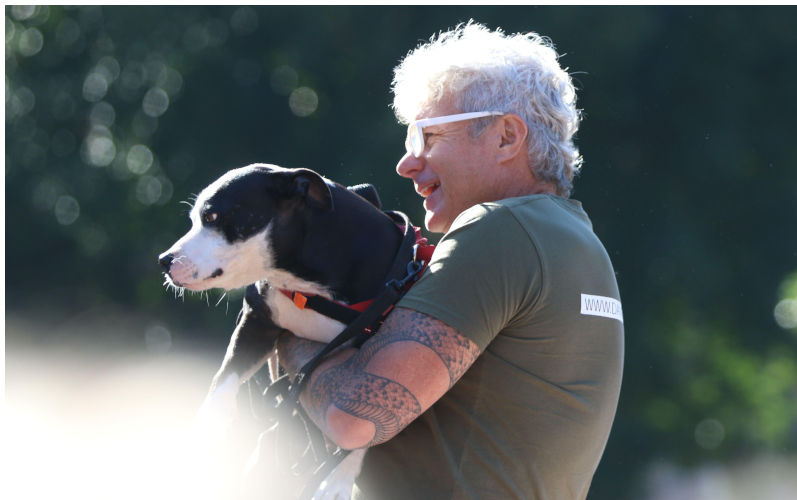Australian whistleblower David McBride’s appeal rejected
May 31, 2025
The Australian Government whistleblower is headed back to jail with no end in sight to his incarceration. He is serving nearly six years for leaking documents to the media exposing Australian war crimes in Afghanistan.
A three-judge panel at the Supreme Court in Australia’s capital spent less than one minute dismissing all appeals by David McBride, sending the government whistleblower back to prison where he is serving a six-year sentence for exposing his country’s war crimes in Afghanistan.
McBride appeared only briefly in court and waved to his lawyer, family and the few supporters who were able to make it into the courtroom. After the judges pronounced their decision, he was whisked off back to his Canberra jail cell, leaving his ex-wife in tears.
His attorney and a few supporters were left stunned and ashen-faced as they reeled from the ruling. McBride’s next step is to ask leave of the High Court, Australia’ highest court, to hear his case. That could take many months with no guarantee the appeal will be heard.
The Supreme Court on Wednesday seemed to have wanted to minimise the number of McBride supporters in the courtroom, as previous hearings have produced outbursts of standing ovations from the packed public gallery. One of the judges even admonished the few in attendance not to protest.
This time McBride’s name and courtroom number were not posted on a large board in the court’s lobby, leaving his supporters scrambling to find out where his hearing was.
By the time they arrived, McBride and the judges were already gone three minutes after the hearing had begun.
The judges had made a single pronouncement: “The appellant’s appeals against his conviction and his sentence are dismissed.”
Some judges read their decisions in court. This time the judges waited three months to spend less than three minutes on the bench. The thinking behind their ruling is contained in a 40-page document, obtained by Consortium News**.**
Appeal of conviction and sentence denied
McBride pleaded guilty to the charges against him after the trial judge in November 2023 denied him a public interest defence and allowed government agents into the courtroom to seize reams of McBride’s documentary evidence in the name of protecting “national security".
McBride was thus convicted of unlawfully communicating naval, military or air force information other than in the course of his “official duty” as well as publishing confidential information outside of his “duty”. He was also convicted of theft of government property.
McBride appealed his conviction because, he argued, there was a miscarriage of justice since his guilty pleas were entered as a consequence of a “wrong decision of law”, the judges’ ruling says. This was, “whether by way of the appellant’s oath of enlistment … extended to acting in the ‘public interest’, even where in contravention of a lawful general order”.
The judges found on Wednesday that there was no wrong decision of law and no miscarriage of justice and dismissed the conviction appeal.
They contended in their decision that McBride really didn’t want to reveal war crimes, but rather to cover them up.
“In taking and disclosing the confidential material, the appellant was not attempting to bring allegations of war crimes committed by Australian soldiers to the public’s attention,” the judges wrote.
“On the contrary, the … appellant’s concern was not that alleged war crimes by Australian soldiers were being under-investigated by the ADF. Rather, his concern was the converse: that such allegations were being over-investigated by the chain of command.”
McBride has argued that this is a deceptive interpretation of events. He says that he complained that minor incidents in and after 2013 in Afghanistan were being over-investigated while major war crimes in 2012 were being covered up.
Sentence appeal rejected
The sentence of nearly six years was appealed on the grounds of McBride’s motivation to wrong an injustice, that he believed what he was doing was lawful because of his duty to the public, which he held took precedence over duty to the King.
There were also considerations of McBride’s mental health. A reduced sentence or community service was considered but these were also denied.
The courts have taken a very hardline against McBride, a non-violent offender who revealed actual evidence of Australian war crimes following his duty under the Nuremberg Principles to do so.
Eddie Lloyd, McBride’s attorney, told Consortium News that the next step was to file an application for leave to appeal the case to the High Court, Australia’s highest court. She said McBride would not be due for a parole hearing until August 2026.
After the ruling Wednesday, Lloyd issued a statement from McBride. He said:
“People who have stood up for what is right in history have suffered far more than I have. … It is a great privilege to sacrifice for the country and I am confident the outrage produced by this judgment will be felt by all Australians. I will not give up.”
Lloyd called Wednesday’s judgment “a failure of justice.” She said:
“We are disappointed in the court of appeal in their failure to appreciate the public interest issues in this case and the ramifications this decision has for other Australians. …
David should never have spent a single day behind bars. Yet as we speak, he is returning to a cold, dark prison cell — preparing for winter in a concrete jungle — while those who committed crimes walk free and those who covered up those crimes have been rewarded with medals and promotions. …
It cannot be illegal to tell the truth. When a soldier acts on conscience to report wrong doing, their actions must be protected — and their complaint properly investigated. Otherwise, we are not a democracy. We are something else.”
Republished from Consortium News, 27 May 2025
The views expressed in this article may or may not reflect those of Pearls and Irritations.

